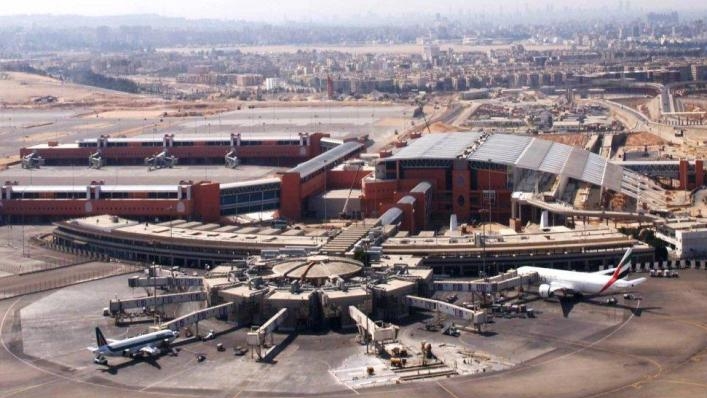As part of its long term commitment to Egypt, the World Bank has supported a number of infrastructure projects. The projects have varied but the goal has been constant: to help Egypt grow and provide the economic opportunities that all Egyptians need to prosper. This is especially true of the World Bank’s ongoing investments in transportation, which develop critical infrastructure while having an immediate impact on all segments of society. From improving train safety to major construction, the projects are all designed to generate employment, or make work easier to reach, and raise the quality of life.
In 2004 the government of Egypt launched a project to expand the Cairo airport. A vital link with both the region and the outside world, the airport plays a critical role in the country’s economic growth. Around 80% of tourist traffic comes through Egypt’s airports and tourism counts for half of the international traffic at the Cairo airport. 12.4 million tourists visited Egypt in 2009, generating revenues of US$10.5 billion. It is estimated that 2.5 million jobs directly and indirectly depend on tourism. It is a critically important industry, despite the current dip in tourism as a result of the uncertainty surrounding the political transition, and requires the appropriate infrastructure to grow. The airport had become a bottleneck and needed expanding to accommodate more traffic. As there were limited prospects for private financing for airport development at the time, the World Bank stepped in and supported the construction of the third terminal at Cairo airport. When it became clear that the second terminal needed expanding and rehabilitation, the Bank provided similar support in 2011. With its capacity more than doubled, it is now one of the largest airports in Africa, second only to Johannesburg. More importantly, the airport transport sector generates significant employment, including a sizeable number of skilled jobs. It is estimated that one direct job in air transport creates six indirect jobs in the economy.
Every project the World Bank finances is subject to stringent guidelines to ensure fairness and transparency. It was no different for the Cairo airport expansion, where the World Bank contributed to the financing of the new Terminal 3 (TB3 - with bidding in 2004) and the rehabilitation and expansion of Terminal 2 (TB2 - with bidding in 2011). The standard guidelines were followed throughout the projects:
* All World Bank funded contracts were procured competitively through International Competitive Bidding, which means no sole sourcing, and in accordance with the Bank’s own guidelines published in “Guidelines for Procurement under IBRD Loans and IDA Credits.”
* Throughout the selection of all contractors and consultants, and before the Government of Egypt signed any contract funded through the World Bank loan, the Bank reviewed all of the government’s procurement documents and reports.
The details of the TB3 bidding process were as follows:
*Following the prequalification process 11 out of 14 applicants were invited to submit bids: China State Construction, Construtora Norberto Odebrecht, Samsung/Archirodon, Arab and Spanish Contractors, Vinci/CCC, Taisei Corporation, Joannou & Paraskeveides, TAV & Hol. Comp, Balfour Beatty Group, Saudi Binladin/Tumer, Bouygues/Orascomn/Besix JV.
*Seven bids in total were received from Arab and Spanish Contractors, Vinci/CCC, Taisei Corporation, Joannou & Paraskeveides, TAV & Hol. Comp, Saudi Binladin/Tumer, Bouygues/Orascomn/Besix JV, with two subsequently disqualified during detailed evaluation as they were found to be non-responsive.
*The Government of Egypt ultimately proposed that the contract be awarded to TAV & HOL. Comp JV a joint venture led by a reputable Turkish firm which was the lowest compliant bidder.
*The World Bank's Operations Procurement Review Committee, the highest procurement committee in the Bank, carried out a detailed review of both the prequalification and the bid evaluation report and approved the results after verifying compliance with the Bank's procedures.
The bidding process for the TB2 rehabilitation and expansion project was similarly open, competitive and transparent.
There has been a recent drop in tourism, but Egypt is too compelling a destination for tourists to stay away for long. When they return, which will undoubtedly be soon, the expanded capacity and facilities at Cairo International Airport will be ready for them.
For more detailed information on the airport project here and the World Bank’s procurement guidelines here.

